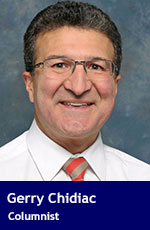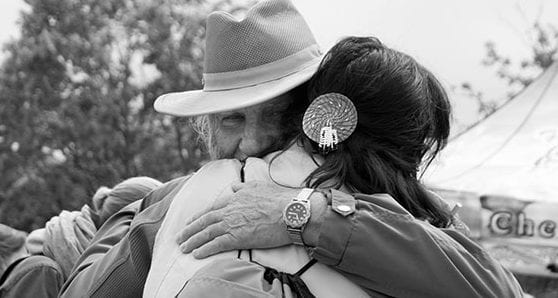 It’s said that what happens to one person impacts us all. This may seem absurd but as I gain experience, it becomes ever clearer that we have a common humanity.
It’s said that what happens to one person impacts us all. This may seem absurd but as I gain experience, it becomes ever clearer that we have a common humanity.
I’ve been teaching high school students about genocide for over 10 years. In the final project of the course, students research a topic of interest to them and present their findings.
Many choose to report on issues that relate to their relatives. Some talk about parents and grandparents who survived the residential schools, or a long-lost uncle who endured the Holocaust. Others draw into question English government policies regarding the Scottish land clearances or the Irish potato blight. Some present the experiences of their families in fleeing more recent conflicts.
All who do research related to their background speak with a combination of pride and sadness.
Part of my motivation for teaching this course has been to reconcile my own family histories.
On one side I have Germans, who were at the very least complicit as racist policies took hold in their government in the 1930s and ’40s. I recall sitting with family in modern Germany asking myself how such a horrible thing could happen in such a wonderful place.
The answer, of course, is that these things can happen anywhere. It’s up to us, as informed citizens, to stand with those who are targeted and let it be known that no form of discrimination is acceptable. I honour my German ancestors by speaking this truth.
On the other side of my family, Syrian refugees fled persecution by the Ottomans in the early part of the 20th century. Perhaps they looked at what was happening to their Armenian neighbours and asked, “Are we next?” History shows they made a good decision, as the number of Christians living in the Middle East continues to diminish.
For years, I saw no connection between my history and that of the Indigenous peoples of Canada. I knew that Canadian policy was aimed at destroying their way of life and that what happened in the residential schools was wrong. I knew I needed to teach this ugly piece of our history but I didn’t feel it was my own story.
Then I began studying the spiritual aspects of Indigenous culture, a wisdom that my church tried to erase. I found my neighbours to be very inclusive with regard to this aspect of the healing process; I felt in no way judged, I was simply accepted as the person I am.
As I learned about the medicine wheel, I felt my life coming into balance. I realized that the wound inflicted on the people who welcome me to their territory is the same wound that was inflicted on my grandparents when they had to flee their homes.
In other words, we have a common humanity. Where one is harmed, we’re all harmed. Where one is healed, we’re all healed.
As I walked out of the medicine wheel experience, I realized I felt no animosity toward the Ottomans and their descendants. I only felt peace and a solidarity with my grandparents, as well as a deep sense of gratitude toward my Indigenous teachers.
I also knew I had to tell others about my experience. Far too often, I hear non-Indigenous Canadians say, “They need to get over this. We suffered too, you know.”
Yes, you and your ancestors did suffer, and the wounds endured are very real. Be aware, however, that First Nations people are not trying to take anything from the rest of Canadian society, they’re simply trying to welcome us on their journey of healing, a journey that’s for all of us on the shared path to reconciliation.
Troy Media columnist Gerry Chidiac is an award-winning high school teacher specializing in languages, genocide studies and work with at-risk students.
The views, opinions and positions expressed by columnists and contributors are the author’s alone. They do not inherently or expressly reflect the views, opinions and/or positions of our publication.
